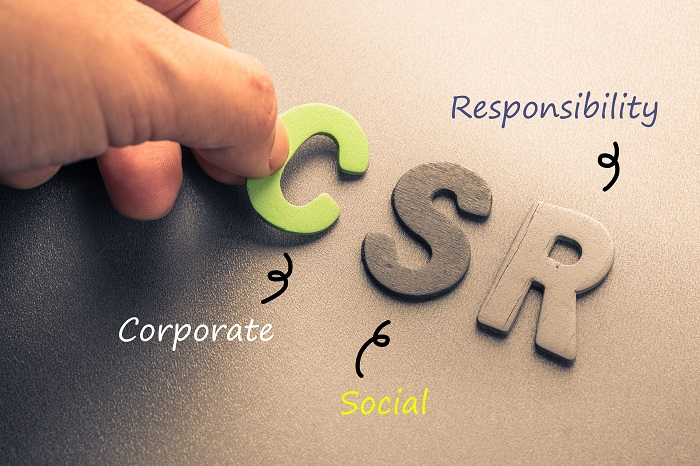
 Data Structure
Data Structure Networking
Networking RDBMS
RDBMS Operating System
Operating System Java
Java MS Excel
MS Excel iOS
iOS HTML
HTML CSS
CSS Android
Android Python
Python C Programming
C Programming C++
C++ C#
C# MongoDB
MongoDB MySQL
MySQL Javascript
Javascript PHP
PHP
- Selected Reading
- UPSC IAS Exams Notes
- Developer's Best Practices
- Questions and Answers
- Effective Resume Writing
- HR Interview Questions
- Computer Glossary
- Who is Who
CSR vs CSV: Not the same?
Since 2011, when Michael Porter, a professor at Harvard Business School, first coined the term CSV, it is often confused with CSR and at times used interchangeably. There is a big difference between the two concepts. This article aims to explain how these two concepts are distinct and which one is better.
What is CSR?
CSR stands for corporate social responsibility. In simplest terms, it is the use of a company's economic resources for philanthropic purposes. It is self-regulatory in nature. It allows companies to be socially accountable to themselves, their stakeholders as well the general public. There are numerous benefits to CSR. It helps in improving the company's brand perception by the consumers. Investors, too, like to put their money into companies that cater to the well-being of society.

But apart from these benefits, a part of the reason for companies opting for CSR is public pressure. Multinational companies are held accountable for abysmal environmental conditions and erratic climate change. After all, in their quest for more and more profits, they have relentlessly exploited natural resources for decades. Now, when the resources have become scarce, these companies are expected to ameliorate the conditions through the capital they have accumulated.
Limitations of CSR
High-Cost
CSR requires money. At times, companies have to compromise their fundamental operations to fund these CSR activities. There are various costs associated with CSR such as the cost of training employees, launching the campaign, and coordinating with external agencies for smooth execution.
No tune between CSR and the company's mission
Most of the companies which invest in CSR are doing it for the sake of it. These CSR activities nowhere align with the company's mission. The problem with this is twofold. Firstly, these non-aligned CSR activities add nothing to the business. Secondly, it attracts public skepticism. Management has a hard time justifying these activities and hence, these activities are perceived as publicity stunts.
Corruption
There have been many instances of refunneling money back to the company through charitable trusts.
Poor reporting
There are no well-established accounting standards that can govern social accountants in auditing and reporting the CSR project.
In order to do away with all the above limitations, came the concept of CSV.
What is CSV?

CSV stands for Creating Shared Value or Corporate Shared Value. In addition to creating value for society, CSV also aims at creating economic value for the company. It can be summed up as "doing well by doing good". In CSV, new customers' needs are addressed, new business opportunities are identified, products are reconceived, and the entire supply chain is redefined to benefit both the company and the local population. CSV enables companies to gain a competitive advantage over their competitors and opens up new revenue streams.
The following table explains the three levels of creating shared value.
Reconceived Products |
Redefined Supply Chain |
Local Cluster Development |
|---|---|---|
Companies actively look for products or services that address the needs of society. |
The resources, energy, labor, logistics, and employees are utilized differently and more productively. |
The local suppliers are given preference to procure raw materials. Local institutions are supported. Skill development of the local population is focused on. |
CSR vs CSV
CSR |
CSV |
|
|---|---|---|
1. |
CSR concentrates solely on doing good for society. |
CSV focuses on creating a positive impact on society and creating economic value for the company simultaneously. |
2. |
Investment in CSR is discretionary or in response to external pressure. |
Investment in CSV is integral to competing. |
3. |
CSR does not affect the profit of the company |
CSV has a direct impact on the profit of the company. |
4. |
Agenda for CSR is determined by external agencies |
Agenda for CSV is company specific and hence internally determined. |
5. |
There is a separate CSR budget. |
CSV realigns the entire company budget. |
6. |
Example: Fair Trade Purchasing |
Example: Transforming procurement to increase quantity and yield. |
Need to Shift from CSR to CSV
Rather than acting as charity givers, businesses should focus on addressing the pressing issues of society as they have the required resources and means for scalability and innovation. This pursuit will also open up major strategic opportunities for them to gain a competitive advantage. Hence it makes sense to realign the business around shared value for a greater purpose.
Companies Implementing CSV Successfully
Adidas
Adidas is committed to reducing the carbon footprint on the planet. It is working with Parley to turn plastic into high-quality sportswear. They have organized events like "Run For the Ocean" to fund their mission.
Nestle
Nespresso, Nestle's fastest-growing division, chose the rural areas of South Africa and Latin America for their supply of beans. These areas had multiple issues like low productivity, lack of technology, and poor quality. Through Nestle's investment, the entire community of those areas got empowered while producing premium coffee beans for the company.
Lifebuoy
In order to push their product in the rural market, lifebuoy came up with a handwashing behavior change program in the rural communities of 16 countries that advocated the benefits of using a hand wash. In this way, Lifebuoy not only captured a new market but also changed the behavior of at least 130 million people.
CISCO
Cisco has these remote IT training programs which enable cluster development. This way, Cisco, not only did increase its employee force but also supported families of the marginalized community.
Dow Chemicals
Dow Chemicals increased its annual sales by introducing more heart-healthy food products in its oil product line. In this way, they helped people around the world combat obesity and hypertension.
Conclusion
Government alone cannot handle all the societal and environmental problems of the world. The purpose of the businesses, thus, can no longer be just generating profits. The consumers are expecting much more from them. Only those businesses which can adapt to these expectations quickly and efficiently will sustain themselves in the market in the future. Hence, a shared value culture, characterized by innovation and productivity, is what time demands.

